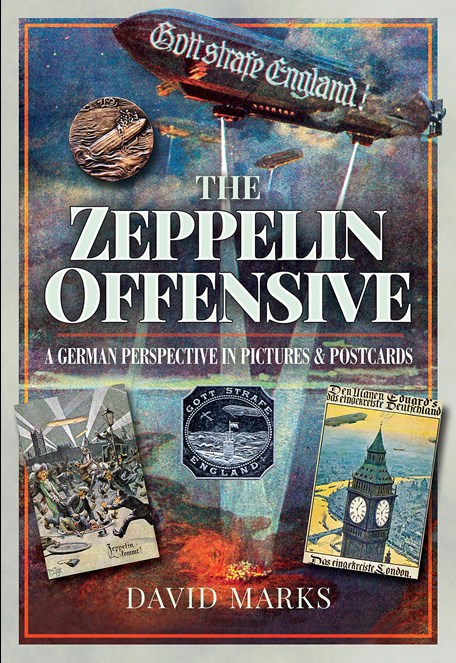Search
- Home
- Search
Search results for Air Raid.
027: Winter 1989
Download PDF This browser does not support inline PDFs. Please download the PDF to view it: Download PDF
Ep. 158 - The German Zeppelin Offensive and Propaganda – David Marks
/the-latest-wwi-podcast/ep-158-the-german-zeppelin-offensive-and-propaganda-david-marks/
David Marks talks about his recent book on the German Zeppelin Offensive as documented in propaganda, postcards and pictures. This has been published by Pen & Sword.

5 June 1917 : Gunner Herbert Howard Gandy
/on-this-day/5-june-1917-gunner-herbert-howard-gandy/
He was the son of John Ripley of Hove and Agnes Elizabeth (née Page) of Brighton. At the 1891 Census the 8 month old Herbert was and at home, 95 Ellen St, Hove, with his mother (a laundress) and five siblings: Ellen 17 (a laundress), Arthur 16, Ripley 12, Frederick 7 and Daisy 2. His father was not at home. Their mother died in 1900 and their fath…
The Original Long Distance Bombers of the First World War
/world-war-i-articles/the-original-long-distance-bombers-of-the-first-world-war/
Most of us are familiar with the RAF bombing campaigns of the Second World War, but few are aware that such cities as Cologne, Frankfurt, Mannheim and Stuttgart had already been targeted two decades earlier during the First World War. The reward for building an organisation like The Western Front Association on a foundation of reputable research i…
The Gotha Air Raid on London – 13 June 1917
/world-war-i-articles/the-gotha-air-raid-on-london-13-june-1917/
German air raids on Britain during the First World War began in early 1915 when Zeppelins were used to bomb coastal targets in Eastern England. The use of Gotha bombers began in May 1917 - these aircraft were capable of long distance flights and were used to make daylight raids on South East England. On 13 June 1917, German Gotha aircraft carried…
The Air Raid on Chatham Drill Hall 3 September 1917
/world-war-i-articles/the-air-raid-on-chatham-drill-hall-3-september-1917/
On 3 September 1917, the Chatham Drill Hall, then a glass roofed building, was being used as a temporary overflow dormitory for sailors and there were 698 men asleep or resting in their hammocks in the Drill Hall. The Drill Hall formed part of the Royal Navy’s HMS Pembroke barracks at Chatham. Above: the main gate to HMS Pembroke thought to have…





